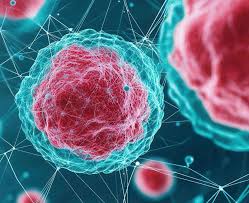19 February 2025 | Wednesday | News

Picture Courtesy | Public Domain
Ultragenyx Pharmaceutical Inc. announced the U.S. Food and Drug Administration (FDA or the Agency) has accepted for review the Biologics License Application (BLA) seeking accelerated approval for UX111 (ABO-102) AAV gene therapy as a treatment for patients with Sanfilippo syndrome type A (MPS IIIA). The FDA granted the BLA Priority Review with a Prescription Drug User Fee Act (PDUFA) action date of August 18, 2025. The FDA also informed the company that they are not currently planning to hold an advisory committee meeting to discuss this application.
“Acceptance of the UX111 BLA brings us closer to being able to provide a first-ever treatment for Sanfilippo syndrome type A and, if our application is successful, we’re prepared to launch this therapy for patients and their families,” said Emil D. Kakkis, M.D., Ph.D., chief executive officer and president of Ultragenyx. “By reaching alignment with the Agency on a path forward for accelerated approval in neuronopathic MPS diseases, our UX111 program could serve as a step towards advancing drug development across multiple metabolic diseases of the brain.”
The BLA submission for UX111 is supported by available data, including the latest data from the ongoing pivotal Transpher A and long-term follow-up studies presented at WORLDSymposium™ 2025, demonstrating treatment with UX111 resulted in rapid and sustained decreased levels of heparan sulfate (HS) in cerebrospinal fluid (CSF) in patients with Sanfilippo syndrome type A irrespective of age or stage of disease progression at the time of treatment. The data showed a statistically significant improvement in the Bayley-III raw scores for the subdomains of cognition, receptive communication and expressive communication in the modified intent-to-treat (mITT) group compared to natural history data from untreated patients. These clinical endpoints were correlated with substantial and sustained reduction in levels of CSF-HS. The most frequently reported treatment-related adverse events to date were elevations in liver enzymes, and the majority of these events were mild (Grade 1) or moderate (Grade 2) in severity and all resolved.
© 2026 Biopharma Boardroom. All Rights Reserved.